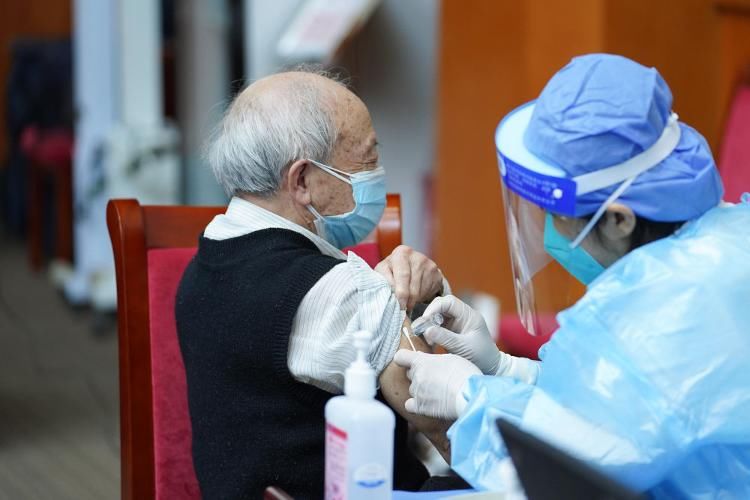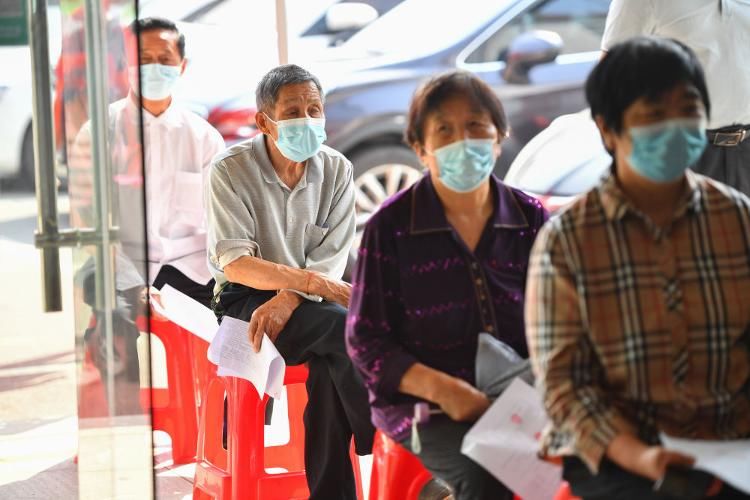Recently, the overall national epidemic situation continues to show a downward trend, but local transmission has not been completely blocked in some places, and the epidemic prevention and control situation is still severe and complicated.
What is the necessity and urgency for the elderly to be vaccinated against COVID-19? Why does vaccination reduce the risk of severe illness and even death? For elderly care institutions and long-term home-based elderly, how to implement detailed and precise protection? Wang Guiqiang, director of the Department of Infectious Diseases of Peking University First Hospital, and Wang Huaqing, chief expert of the immunization program of the Chinese Center for Disease Control and Prevention, gave authoritative answers.
“It can be seen from some data that the elderly are a high-risk group of severe infection, and the necessity and urgency of the elderly group to be vaccinated against the new crown is very clear.” Wang Guiqiang said.
 On April 18, Jianguomen Street, Dongcheng District, Beijing cooperated with Community Health Service Center and Longfu Hospital to open vaccines at the Chinese Academy of Social Sciences Vaccination session. Healthcare workers vaccinate seniors against coronavirus. Photo by Xinhua News Agency reporter Ju Huanzong
On April 18, Jianguomen Street, Dongcheng District, Beijing cooperated with Community Health Service Center and Longfu Hospital to open vaccines at the Chinese Academy of Social Sciences Vaccination session. Healthcare workers vaccinate seniors against coronavirus. Photo by Xinhua News Agency reporter Ju Huanzong
“After the elderly are infected with the new coronavirus, the proportion of severe illness and death is the highest among all age groups.” Wang Huaqing said that for the elderly, general infection After viruses or bacteria, the incidence of autoimmunity increases, and inflammatory reactions are more likely to occur; most of the elderly have underlying diseases, and if they are infected with viruses, the symptoms of the original disease will be more severe or comorbidities are more likely to occur.
“Three doses of the new crown vaccine can effectively prevent severe illness and death in the elderly.” Wang Guiqiang said that from the current data, two doses of the new coronavirus vaccine for the elderly produce more antibodies than two doses for the young The antibody level will increase rapidly after three injections of vaccination. If the antibody level is high, the elderly can be better protected and the risk of severe illness and death can be reduced.
 April 11, at the temporary vaccination site of the new crown vaccine in Tuantouhu Village, Qiaokou Town, Wangcheng District, Changsha City, Hunan Province. Waiting in line to get vaccinated against COVID-19. Photo by Xinhua News Agency reporter Chen Zeguo
April 11, at the temporary vaccination site of the new crown vaccine in Tuantouhu Village, Qiaokou Town, Wangcheng District, Changsha City, Hunan Province. Waiting in line to get vaccinated against COVID-19. Photo by Xinhua News Agency reporter Chen Zeguo
Wang Huaqing said that from the current monitoring of areas seriously affected by Omicron in China, it can be seen that unvaccinated and vaccinated two doses, followed by three doses The difference in protective effect between two doses is very obvious, and there is also a significant difference in the prevention of severe disease and death between two doses of vaccination and three doses of vaccination.
Relevant data show that among people over 60 years old, the incidence of severe disease in those who have not been vaccinated and who received only one dose of vaccine is 20 times that of those who received two doses and three doses of vaccine. above.
 On April 20, at the Community Party and Mass Service Center of Xidu Street, Fengxian District, Shanghai, elderly residents are registering for the new crown vaccination. Xinhua| At the same time, governments at all levels should strengthen the coordination and organizational management of vaccination, and adopt various “green channels” for the elderly, including door-to-door vaccination, promotion of mobile vaccination vehicles, etc., to ensure that the elderly receive everything they need.
On April 20, at the Community Party and Mass Service Center of Xidu Street, Fengxian District, Shanghai, elderly residents are registering for the new crown vaccination. Xinhua| At the same time, governments at all levels should strengthen the coordination and organizational management of vaccination, and adopt various “green channels” for the elderly, including door-to-door vaccination, promotion of mobile vaccination vehicles, etc., to ensure that the elderly receive everything they need.
In addition, elderly care institutions and long-term home-based elderly are the weak and key links in the fight against the epidemic. Wang Guiqiang suggested that it is necessary to ensure that these elderly people are vaccinated as soon as possible, emphasize basic protection, wash hands frequently, wear masks, reduce crowd gatherings, and maintain frequent ventilation in activity places. In addition, people around the elderly should do personal protection, regular self-monitoring, nucleic acid screening, and strengthen the awareness of prevention and control to avoid the spread of the virus within the family and within the nursing home. (Reporter Li Heng)